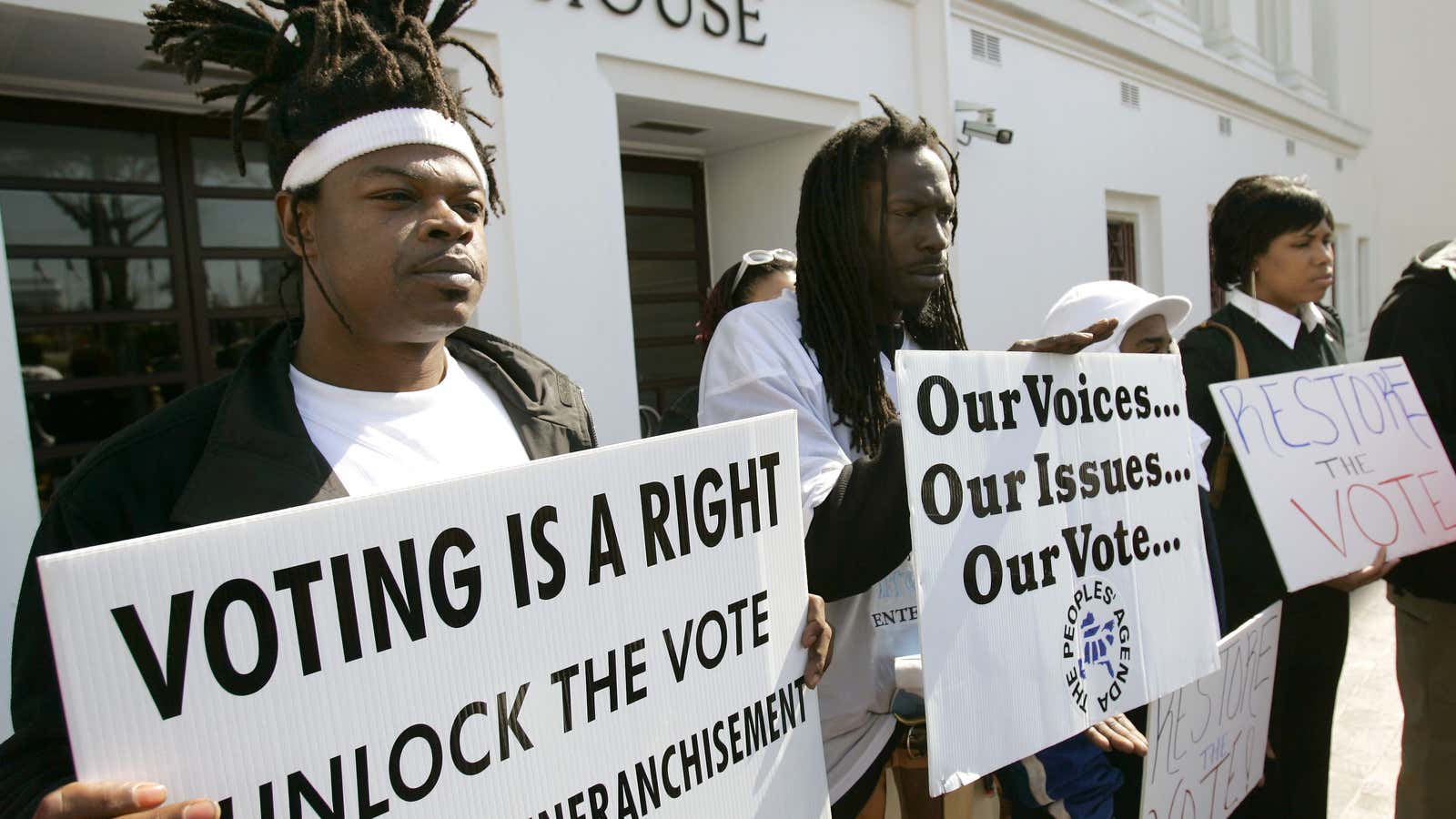Juneteenth marks the end of slavery in Texas in 1865. Yet more than a 150 years later, some 2.3 million people are still deprived of their freedom by way of incarceration. And a disproportionate number of them are black.
Overall, 2.7% of the adult population in the United States is subject to some form of correctional supervision. With 698 people in prison for every 100,000 residents, the US ranks first in the world for its rate of incarceration (El Salvador, which has the second-highest rate, is at 614. The first western democracy, the UK, is at 141 per 100,000). While the US population accounts for about 5% of the world‘s people, it accounts for 21% of the world’s prison population. And while only about 12% of the American population is black, 33% of the prison population is.
As historians have shown, in many ways the current American prison system evolved to provide free labor after the abolition of slavery. But there is another way in which the prison system deprives the black population of power: It often takes away their right to vote.
The issue has been a matter of political debate among presidential hopefuls. Vermont Sen. Bernie Sanders advocates for the right to vote for all felons, whether they are still in prison or not. Mayor Pete Buttigieg opposes that position, supporting the suspension of voting rights for felons while serving their sentence. Massachusetts Sen. Elizabeth Warren has called for a constitutional amendment that would force states to guarantee former felons the right to vote.
Taking away the right to vote from people convicted of crimes isn’t unique to the United States. The countries that qualify as democracies according to the Democracy Index have varied policies. Many allow all felons to vote, while others limit disenfranchisement to those given long-term sentences. Some countries enforce full bans on voting while in prison, some even while on probation and parole, and a handful take away voting rights permanently, even after release from prison.
Among the countries with permanent disenfranchisement for felons, however, the United States is unique. While Chile, Germany, Greece, Italy, and Lesotho don’t restore voting rights after the end of a life sentence, they do so for other sentences. The US is the only democracy in the world where, at least in some states, voting rights are permanently revoked for former convicts, no matter the crime.
Even in states where that isn’t the case, former inmates often can’t vote if they are on probation or out on parole. And in many cases, there is the additional burden of applying to have voting right reinstated. This poses further issues: Getting a voter ID can be complicated, and up to 4.5% of the population in some states—particularly minorities—don’t have one. Further, the very need to apply reduces access to vote, because people may not have the time, information, or agency to do so. Once again, minorities are especially vulnerable.
To make things worse, laws vary by state. Vermont and Maine, for instance, allow felons to vote. Iowa, Kentucky and Virginia permanently deny voting rights for felons. Those who aren’t aware of the regulations in their state risk further charges if they try to vote illegally.
This has resulted in more than 6 million disenfranchised citizens—many of whom are black. Overall, 7.44% of African Americans don’t have voting rights, and in four states (Florida, Kentucky, Tennessee, Virginia) more than 20% of the black population has no access to the polls.
